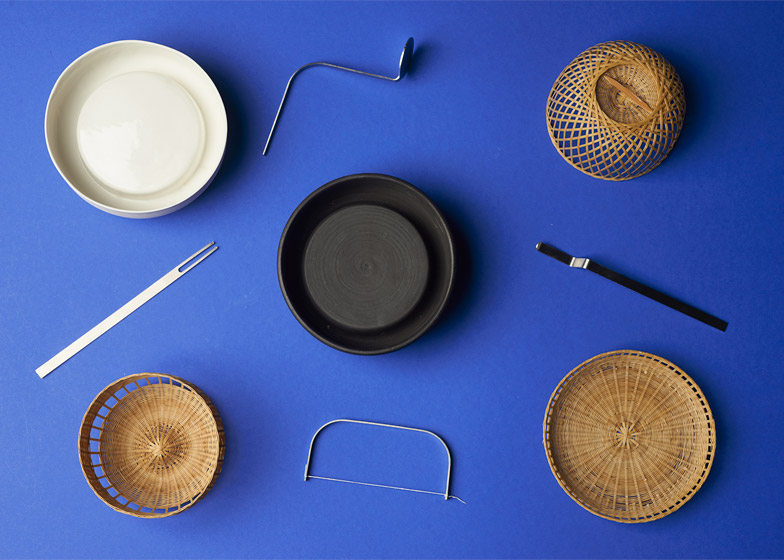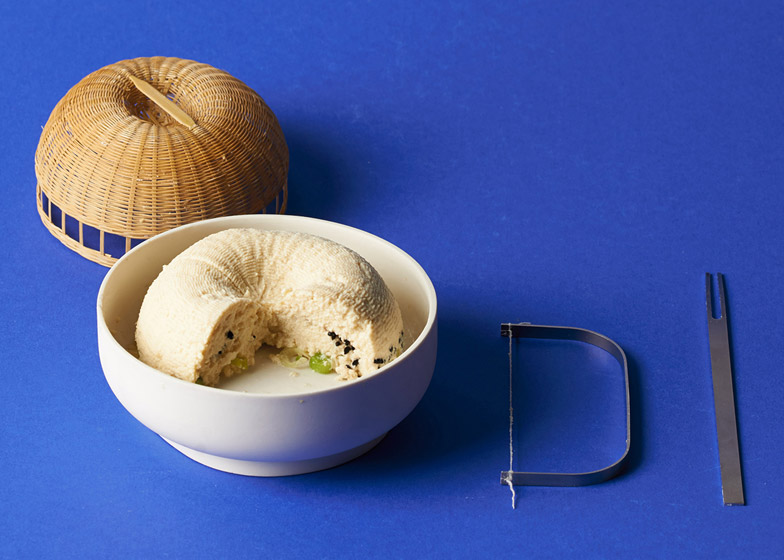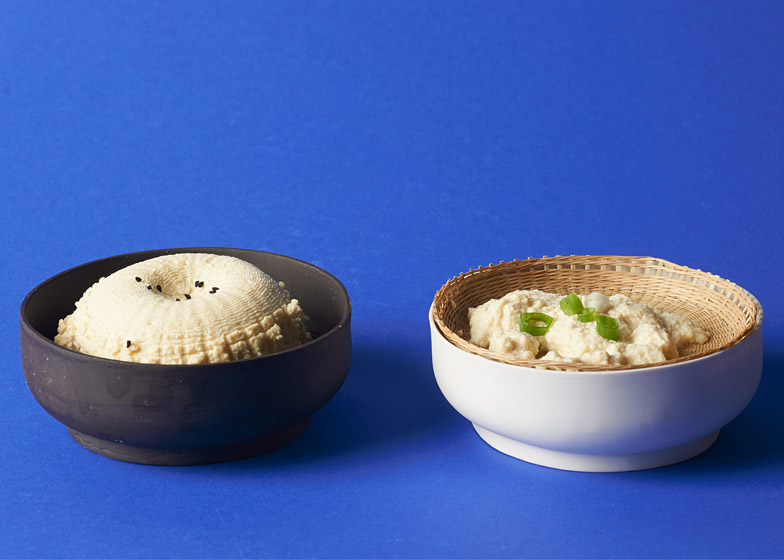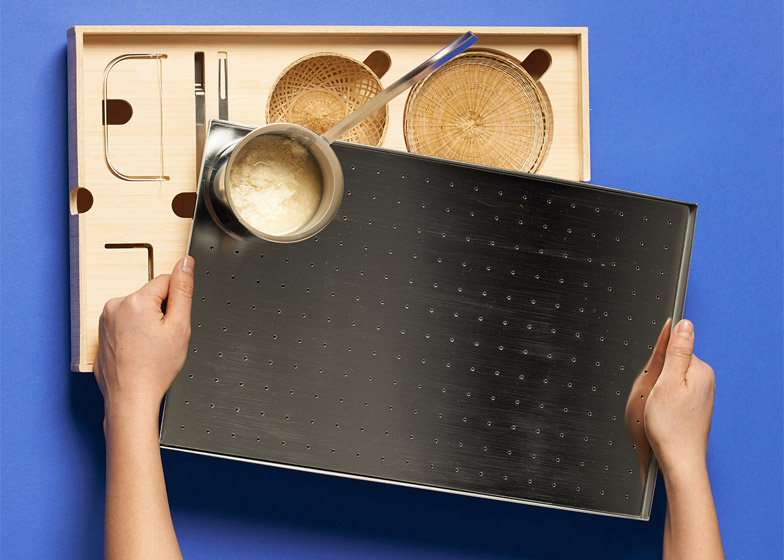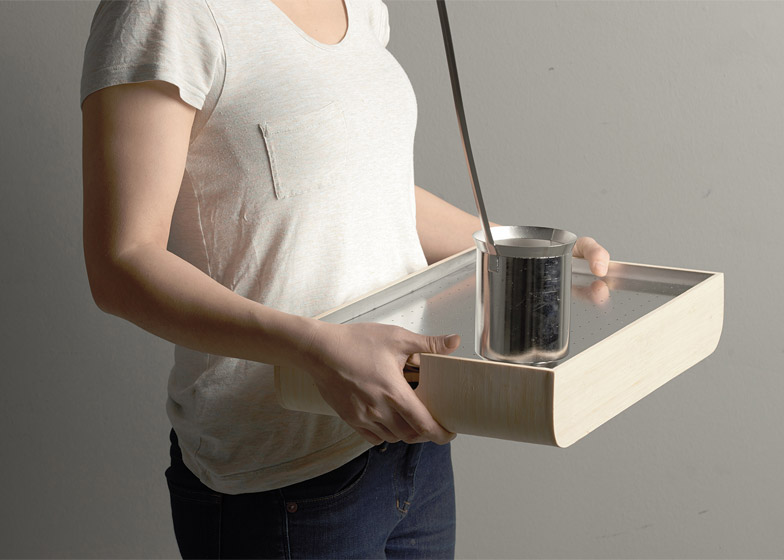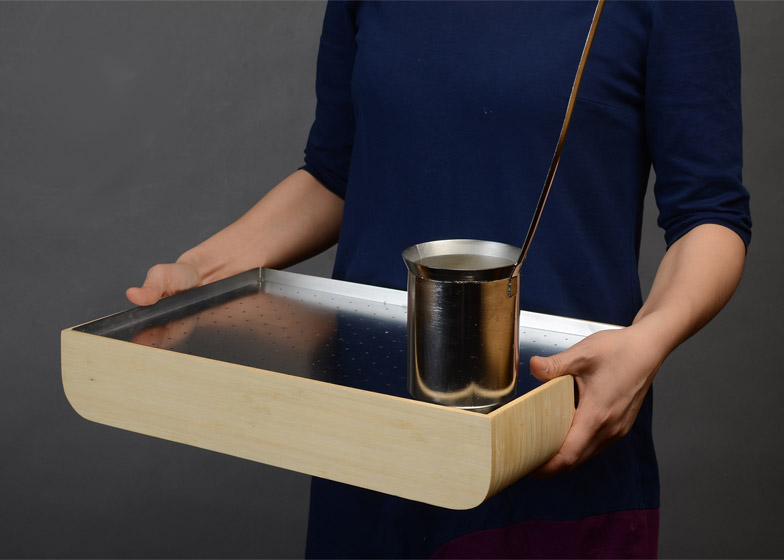Milan 2015: specially adapted cooking implements, hand-woven baskets and ceramic bowls slot into this wooden and metal box, created by Chinese designer Weiwei Wang to work as a portable tofu-making kit (+ slideshow).
Weiwei Wang designed the Slow Tofu kit to introduce homemade tofu – soy-milk curd used in many Asian cuisines – to western palettes.
Created as the final project of her bachelor's course at the Bauhaus University, the kit was presented at the Satellite exhibition for emerging designers at the Salone del Mobile in Milan from 14 to 19 April.
Wang came up with the idea for the project after noticing a growing interest in meat- and dairy-free diets in western countries, and designed the set to introduce the concept of making and eating fresh tofu – rather than pre-prepared varieties – to newcomers.
"Alongside the trend of vegetarianism and veganism, tofu is gaining increased attention in western countries," said Wang.
"However, since it's still commonly considered as a replacement for meat and dairy products and is often purchased in bulk from the supermarket, most people miss out on its best state: while it's still fresh."
Wang created a set of steel tools specially designed for cooking, pressing, cutting and eating tofu.
One instrument shaped like a dentist's mirror with a bent handle is used to press the tofu into a basket mould, while a wire-cutter is used to segment the tofu cake and a narrow metal fork is used for serving.
The metal utensils, the pair of woven baskets and the ceramic bowls used to form the tofu all pack down into a wooden box. A perforated steel lid for the box doubles as a preparation surface.
The tools fit into precisely shaped openings in the surface of the wooden half of the box, while a circular opening in the metal half is designed to hold the saucepan used to cook the ingredients.
Soy milk mixed with a setting agent is warmed in the saucepan before being poured into one of the baskets, which acts like a strain.
The disk-shaped utensil can be used to help press the curds against the perforations in the woven bowl, allowing excess liquid to drain through its base and into the rows of tiny holes in the metal tray.
Once the liquid has drained away, an imprint of the handmade basket is left in the surface of the dome of fresh tofu.
"The hand-woven bamboo tools for moulding tofu are creations of cooperating with rural Chinese artisans," explained Wang.
"As a result, the tofu made out of those tools conveys a clear quality of craft, supporting the hands-on tofu-making experience."

